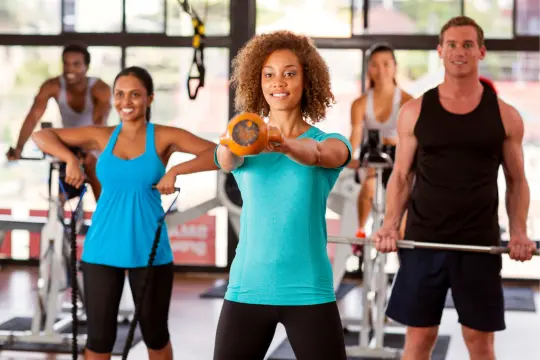Imagine walking down a quiet street in the early morning. The sun is just starting to rise, and a gentle breeze blows through the trees. You take a deep breath and feel your body come alive as you begin your daily exercise routine. As you move through your workout, you feel strong, energized, and alive.
But exercise isn’t just about feeling good in the moment. It has long-term benefits that can impact your health and wellness for years to come.
Today, we’re going to explore one of those benefits: the impact of exercise on bone health.
Strong bones are essential for a healthy body. They provide support, protect our organs, and help us move.
As we age, our bones become weaker, making us more susceptible to fractures and other injuries. But regular exercise can help keep our bones strong and healthy, even as we get older.
From weight-bearing exercises like running and hiking to low-impact activities like yoga and Pilates, there are countless ways to incorporate exercise into your daily routine and improve your bone health. And the benefits don’t stop there.
Exercise has been shown to boost mood, reduce stress, and improve overall physical and mental health.
So what types of exercise are best for bone health?
Weight-bearing exercises are the most effective, as they require your bones to support your body weight.
This includes activities like walking, running, dancing, and weightlifting. Non-weight-bearing exercises, like swimming and cycling, are still beneficial for your overall health, but they don’t have the same impact on your bones.
It’s also important to note that the intensity of your exercise matters. Moderate to high-intensity exercise has been shown to have the greatest impact on bone health, so don’t be afraid to push yourself a little.
Of course, it’s always a good idea to talk to your doctor before starting any new exercise program, especially if you have a history of bone fractures or other health concerns.
In addition to exercise, there are other lifestyle factors that can affect your bone health. Getting enough calcium and vitamin D is essential, as is avoiding smoking and excessive alcohol consumption. If you’re concerned about your bone health, it’s a good idea to talk to a healthcare professional or a registered dietitian for personalized advice.
In conclusion, an exercise is a powerful tool for keeping your bones healthy and strong, especially as you age. By incorporating weight-bearing exercises into your routine and challenging yourself with moderate to high-intensity workouts, you can help reduce your risk of fractures and osteoporosis. So, lace up your sneakers, grab your weights, and get moving for better bone health!
So, whether you’re a fitness enthusiast or just starting on your health and wellness journey, join Ishkama as we explore the impact of exercise on bone health and discover new ways to take care of your body, mind, and soul.

